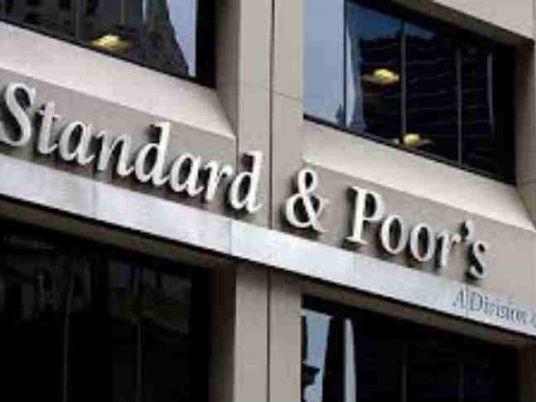In a statement before parliament Sunday, Gawdat el-Malt, head of the state-run Central Auditing Organization (CAO), discussed the government’s performance in the face of rising inflation, poverty, unfair trade rules, poor public education and the state’s seeming failure to contain crises, among other things. El-Malt’s statement summarized the performance of Prime Minister Ahmed Nazif’s government over the course of the last year, highlighting five facts in particular, including:
1) Many recent crises and accidents came about as a logical consequence of the lack of coordination between official parties responsible for crisis management; the absence of coordination between government officials and local authorities; and negligence on the part of some executive bodies. Some officials allowed crises to worsen despite prior warnings of their approach. Some officials even contributed to the creation of crises, forcing the public to submit their complaints directly to the president.
The government must improve its abilities in terms of crisis prevention. It should act as a united, integrated entity capable of immediate reactions. The Egyptian style of administration suffers from chronic flaws, with the president having to intervene on several occasions to correct mistakes committed by government officials.
2) The president is partial towards the poor and low-income segments of society and is continuously working to raise Egyptians’ standards of living. The president’s foreign-affairs activities have a positive impact on domestic affairs, and he is also attentive to the expectations of his people, regularly calling for fair distribution of the fruits of development.
3) Government and state must be differentiated, since only the former is subject to change. There should be no confusion between government and ruling party–the party’s role is to set policy, while the government’s role is to execute these policies.
4) The CAO, as is stipulated by the constitution, represents the legislative authority responsible for monitoring the financial and economic performance of all state departments and authorities.
5) The Armed Forces come at the forefront of government establishments as examples of discipline and commitment. Police authorities, too, have been the most responsive to CAO remarks and recommendations.
El-Malt began his remarks by noting that the Nazif government had "achieved remarkable improvements in several fields over the last years." He went on, however, to note that there were also many negative aspects to the government’s performance.
El-Malt pointed out that, since the outset of the current global financial crisis, the local economy’s growth rate reached 4.7 percent during the 2008/2009 period, compared to 7.2 percent during 2007/2008 and 7.1 percent in 2006/2007. These figures discount domestic population growth of 2.2 percent in 2008/2009 and 2.1 percent in 2007/2008. According to government statistics, the net economic growth rate currently stands at 2.5 percent, compared to 5.1 percent in previous years.
It is notable that the sixth quinquennial plan–that for 2007/2008-2011/2012–set a target for economic growth at 8 percent annually. In this respect, it should be stressed that the Egyptian economy’s success in achieving this rate of growth–compared to concurrent rates in other nations–constitutes proof of its resilience and ability to offset the meltdown’s consequences.
A report by the World Bank noted that Egypt’s overall economic performance had not helped enhance the living conditions of the poor, with the ratio of impoverished citizens climbing to 23.4 percent of the population in 2008/2009, compared to 20 percent in 2007.
Poverty in Egypt represents a rural phenomenon, meanwhile, with the countryside accounting for 77 percent of the nation’s poor, according to a 2007 report by the Ministry of Economic Development issued in association with the World Bank. According to official statistics, poverty in the country is highly concentrated in the governorates of Upper Egypt, especially Minya, Sohag and Assiut.
Egypt ranked 123rd among 182 countries listed on the 2009 Human Development Report, also occupying 82nd place among the 135 states listed in the 2009 Human Poverty Index.
El-Malt stressed that the gap between available resources and consumption continues to widen, noting that the state’s 2008/2009 balance sheet recorded an approximately LE90-billion deficit.
Looking at the final accounts of previous years, it becomes clear that the gap between resources and consumption is increasing year by year. The shortfall for the 2000/2001 fiscal year reached some LE34 billion, and later reached LE61 billion in 2004-2005, then LE90 billion in 2008/2009, despite the addition of LE24.3 billion in the form of an actuarial surplus from the Social Insurance Fund.
El-Malt criticized the deferment of some financial commitments in 2008/2009 with the aim of scaling down the budget deficit, since this only serves to throw additional burdens on future budgets. The overall value of the state’s financial burdens stands at roughly LE3.3 billion.
El-Malt spoke about the stability of the US dollar exchange rate against the Egyptian pound at 552 piasters. He pointed to the decrease in the Central Bank of Egypt (CBE)’s foreign-exchange reserves to LE31.1 billion as of 30 June, 2009, compared to LE34.6 billion one year earlier.
El-Malt noted that, according to data from the CBE, Egypt’s external debt decreased in aggregate to US$31.5 billion (LE176 billion) as of 30 June, 2009, compared to US$33.9 billion (LE180.4 billion) one year earlier. This represents a decrease of US$2.4 billion in the fiscal year ending 30 June, 2009.
In his statement, el-Malt went on to argue that "wise leadership" on the part of the government had played a significant role in reducing Egypt’s debt to Paris Club member states by half and rescheduling remaining debts through soft loans.
Egypt’s external debt remains within safe limits, according to international standards set by the IMF and the World Bank, el-Malt concluded.




